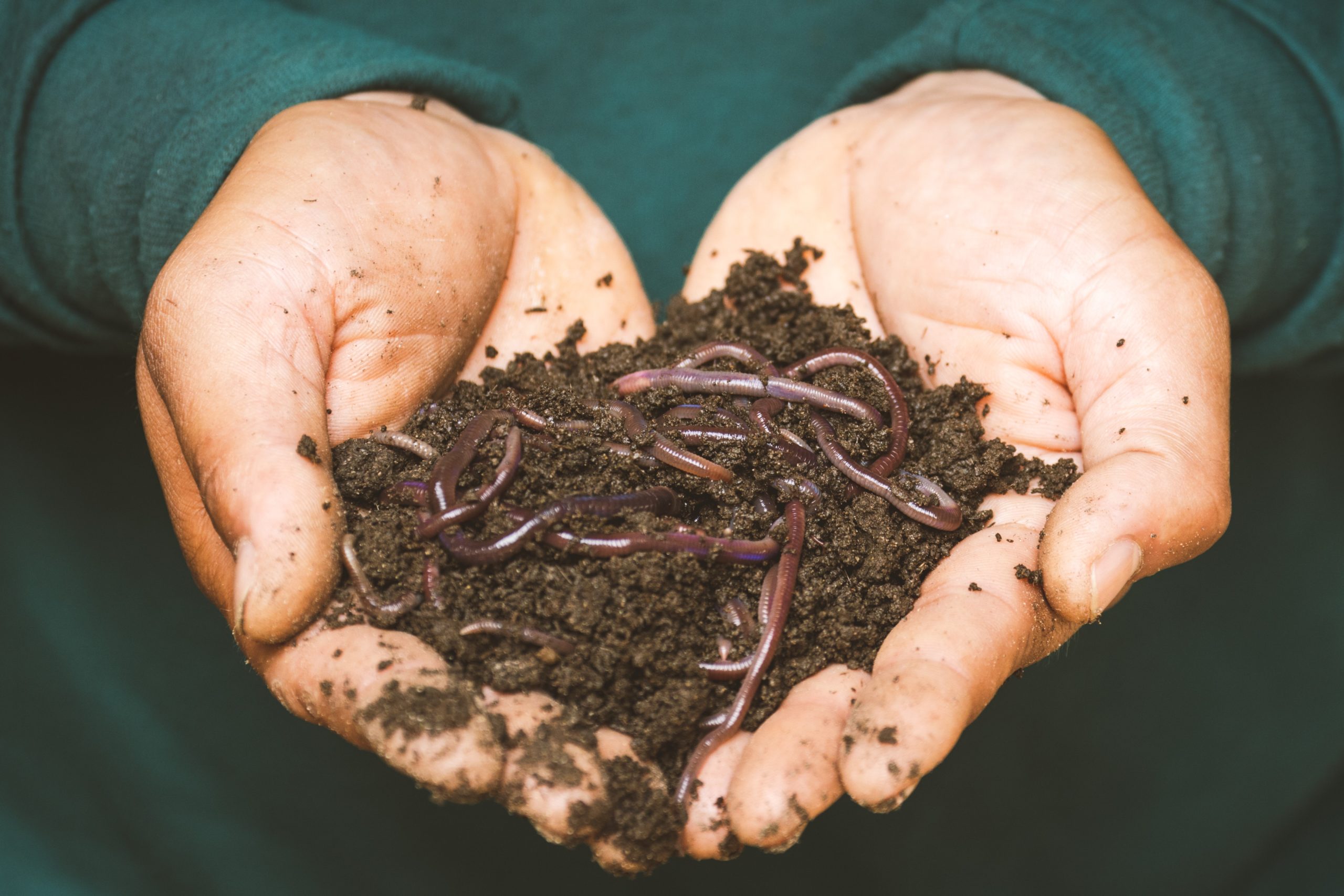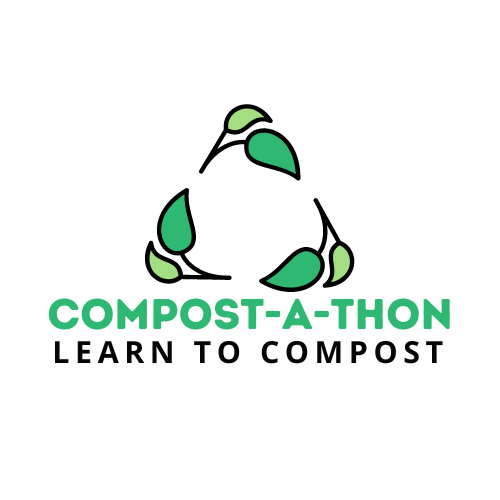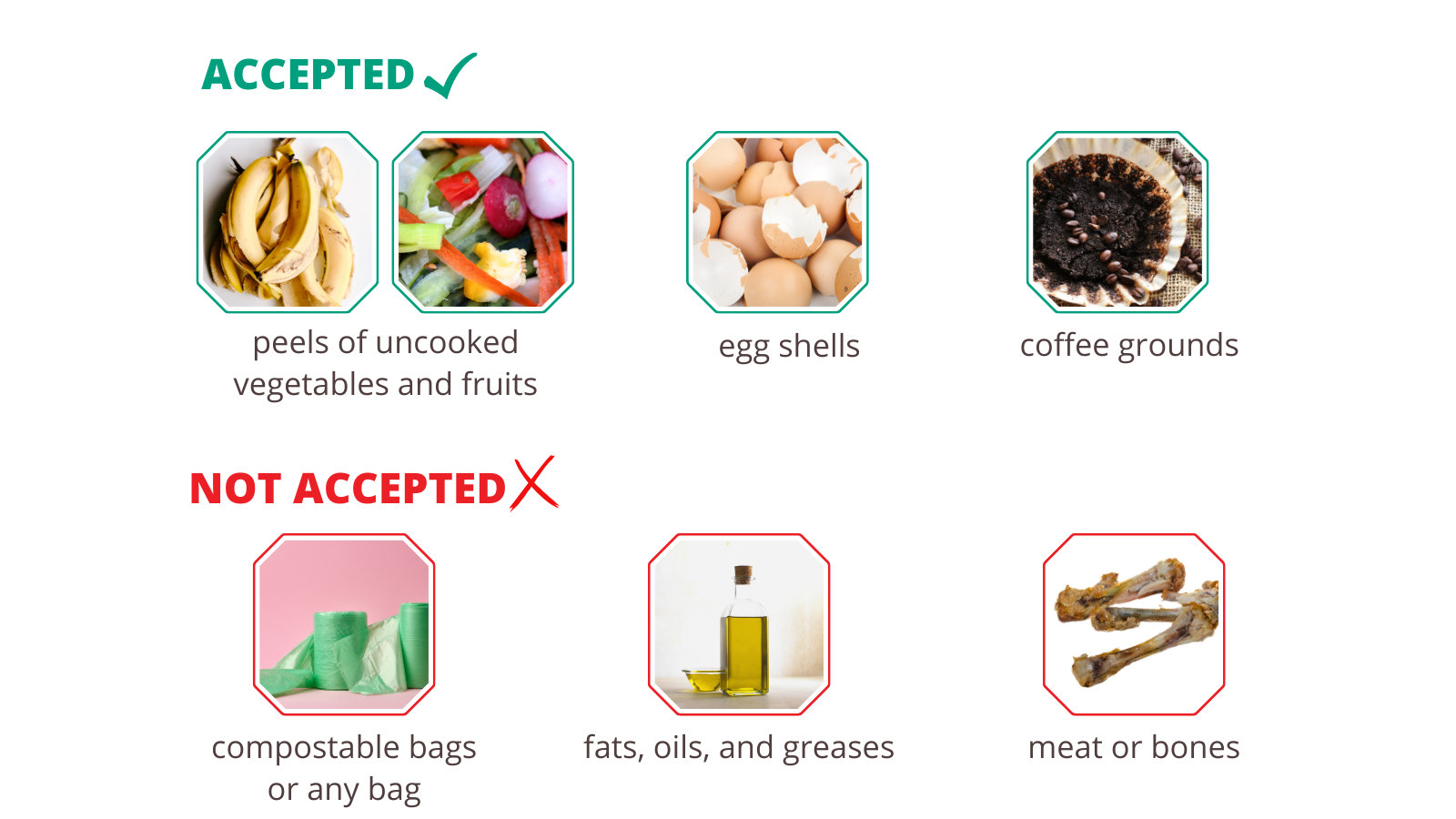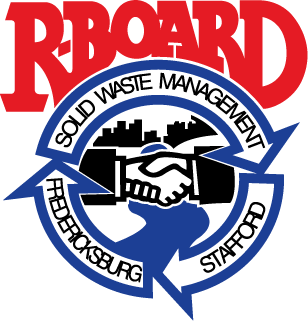Composting
Do you have questions about composting? Watch our “How to Compost” and “Compost Troubleshooting” videos that cover frequently asked questions and problems. If you still have questions, please submit your questions to [email protected]. All questions will be answered by Jonathan Stevens, Master Gardener.
Do you prefer an in-person class? Please attend one of our Backyard Composting classes!

Ask a Master Gardener
Jonathan Stevens lives in Fredericksburg and has been composting and gardening for decades. He says that he loves to have something growing in his back yard all year-round; right now (winter) it’s parsley and garlic.
Jonathan has been a healthcare administrator with John Hancock, an employee benefits consultant with Towers Perrin, and a Certified Financial Planner®, and now in retirement he is active as a Master Gardener Volunteer and helps with the R-Board’s efforts to increase composting and recycling in the region.
Jonathan has a BA from Yale and a Master’s in Public Health from UNC-Chapel Hill. He is a volunteer with, and former Board Chair of the Fredericksburg Food Co-op, which helps promote local, healthy food alternatives. He is also a volunteer with the Dr. Yum Project, which helps families and communities overcome the barriers to eating well.
If you have questions about composting, please submit your questions to [email protected].
Ask a Master Gardener Questions and Answers
Can dyed Easter egg shells be composted?
Assuming the dye is food coloring, then no problem, naturally. Paint or other media would have to be investigated, or just avoided.
What kind of things should I avoid putting in my compost pile?
For backyard composting, we tend to avoid stuff that, while organic, could take a longer time to compost, Including bones, gristle, fat, shells, and such. But they do eventually disintegrate, so if that compost pile can wait, do it! I’m thinking of a hole in the ground or some such thing…!
Where is the best place to but my pile? Sun or shade?
The sun will always help the pile warm up more, but it’s not necessary for the compost materials to heat up. With the proper mix of greens, browns, air and moisture, anywhere is fine. In fact, the garden will appreciate the sunny spots more than the compost will!
Do you need a compost starter or activator?
Those things are fine, especially for the companies selling them, but they are not usually needed. The proper mix of ingredients, plus access to the ground so the microbes, bugs and worms can get involved, is all you need. In an above ground container, it’s wise to throw in some soil and worms once it’s gotten going.
Do you need to cover it in rain?
Usually the rain is good for keeping the pile moist, but in a deluge, the rain can overdo it, and tamp down the whole mix, thus blocking off the access of air into the pile. Probably good to throw on a cardboard raincoat when the monsoon arrives! Anchor it with rocks or such.
Is it possible to compost in an apartment? I have a balcony with no dedicated yard space.
The easiest way to compost without a yard would be to save your kitchen scraps in a container in your freezer (no stink) and contribute the frozen product every so often to a friend or community compost space. I have a few friends without yards who give me their frozen compositions and in exchange I occasionally give them some finished “Black Gold” for their potted porch plants or to strain for compost tea for their house plants. And thanks for helping save the planet.
Where should I store my food scrap collection bin? I have been storing it under the sink. However, it smells bad.
The food scrap collection bin should be emptied into your outside compost bin daily so it doesn’t stink. The best alternative is to dedicate a corner of the freezer for a scrap collection container (airtight) and arrange to contribute the frozen composition when it is full, to your compost bin.
Do you have any suggestions for speeding up the composting process?
Speeding up the composting process can be done in a number of ways. You can chop up your kitchen and house plant scraps as you collect them, manually or in a chopper or blender. If they are cut up finely, then they will break down more quickly into wonderful compost. Also, as you put the scraps into your outdoor compost bin, you can cover them with chopped leaves or other “brown” material, and see that the whole mix is dampened, which will also speed things up. As the mix in your compost bin ages, you can turn it over periodically to re-mix the product, allowing fresh access to air and moisture. This is also an opportunity to restore the balance of the compost material to the desired mix, making sure that the “greens” and “browns” are close to a 50/50 mixture and are uniformly damp (like a wrung-out sponge). Greens, as you probably know, are those items that contain more nitrogen, like grass clippings, coffee grounds, fresh kitchen scraps, and such. Browns are carbon-loaded items, like leaves, tiny twigs, straw, torn-up cardboard, shredded paper, and such. And the more often you turn your mix, the faster it will compost! And you’re a hero!
How long before I get compost?
They say it can take three months or so to get compost you can use if you are incredibly diligent about it, but I don’t know anybody like that! Usually, we leave it out there for a while then remember to go and turn it refresh the mix, and rebalance the air and moisture. Composting requires patience, as it takes about a year for well-finished compost. First, the mix will heat up, due to the hot microbes, then it will cool down and other kinds of microbes get to chewing and chomping. Then it has to finish up when the earthworms and other little critters move it and help out. We have to give it an occasional nudge by turning it, rebalancing Greens and Browns as needed, adding moisture if it’s not still damp, and making sure air gets in there to help too. Thanks for helping keep greenhouse gases out of our atmosphere!
When is the best time to start a compost bin?
The best time to start composting is now! It’s always a good time to start. Right now, there are some free piles of leaves still around to go and collect (be careful to ask permission!). I keep a year’s supply of leaves nearby so I can start a new bin anytime. We’re indoors more nowadays, so it’s a great time to start collecting kitchen scraps in a freezer container (no stink). Pick a convenient place in the yard, clear it, protect it all around with fine-holed chicken wire or hardware cloth, and start loading it! Keep an eye out for critters like a neighbor’s dog or a feral cat (or other critters!) Join a compost messaging group and start bragging! Composters are awesome!
Is it necessary to add lime (calcium) to the compost pile?
It is not usually necessary to add calcium to the compost as various compostable materials have some calcium in them, such as egg shells. All compost needs is a balance of organic material, roughly 50% “greens,” (higher in nitrogen) and 50% “browns” (higher in carbon).
IF your concern is about the amount of calcium in your garden, then I recommend getting a soil test; go to your local Virginia Cooperative Extension Office and get a free soil test kit. If your garden is large and varied, then get multiple kits. The Stafford Extension office, for example, is at the Rowser Building, 1739 Jeff Davis Highway 22554. The test itself costs a mere $10 payable to Va Tech and may be more reliable than most soil tests available in garden centers.
Can newspaper be composted?
Newspaper can definitely be composted, as it is high in carbon, and the inks currently used are reasonably safe. However, it’s good to stay away from glossy inserts and such, as they may contain plastic materials. For newspaper, it’s better to shred it and dampen it a bit so that it has moisture and air readily available.
My compost doesn’t break down. What am I doing wrong?
Compost breaks down naturally when it has a balance of “greens” and “browns,” that is, roughly half nitrogen-based and half carbon-based. Materials with more nitrogen include “green” clippings of grass or leaves, stems and flowers, kitchen scraps, coffee grounds, and such, while carbon-based materials are “brown” leaves, twigs, paper, shredded newspaper and cardboard, among others. If this 50/50 balance exists in your pile, then please make sure that it is kept damp (like a wrung-out sponge) and well aerated. Oftentimes compost can get matted down and air cannot get to the microbes that need it to do their work. Or it is kept too dry and the microbes get thirsty.
Are compost additives, inoculants or activators a good idea?
These things are usually not needed if the compost materials are well balanced with greens and browns, air and moisture (see above comments). The composting microbes that do the work are already naturally present in the soil and on materials that go into compost, like leaves, grass, clippings, etc.
Can compost be used instead of fertilizer?
Yes, compost often has all the components of fertilizers already in it, from the materials it came from. I would recommend a soil test if you haven’t done one in the last few years, before adding fertilizer to your soil. See the question above about getting an inexpensive soil test from the Virginia Tech Soil Testing Laboratory, using a soil test kit from the County Extension Office.
And for general questions, I recommend doing a computer search for the Virginia Cooperative Extension publication 426-703P, “Making Compost from Yard Waste,” which can be found at the website www.ext.vt.edu.
Is it possible to compost in an apartment? I have a balcony with no dedicated yard space.
The easiest way to compost without a yard would be to save your kitchen scraps in a container in your freezer (no stink) and contribute the frozen product every so often to a friend or community compost space. I have a few friends without yards who give me their frozen compositions and in exchange I occasionally give them some finished “Black Gold” for their potted porch plants or to strain for compost tea for their house plants. And thanks for helping save the planet.
Where should I store my food scrap collection bin? I have been storing it under the sink. However, it smells bad.
The food scrap collection bin should be emptied into your outside compost bin daily so it doesn’t stink. The best alternative is to dedicate a corner of the freezer for a scrap collection container (airtight) and arrange to contribute the frozen composition when it is full, to your compost bin.
Do you have any suggestions for speeding up the composting process?
Speeding up the composting process can be done in a number of ways. You can chop up your kitchen and house plant scraps as you collect them, manually or in a chopper or blender. If they are cut up finely, then they will break down more quickly into wonderful compost. Also, as you put the scraps into your outdoor compost bin, you can cover them with chopped leaves or other “brown” material, and see that the whole mix is dampened, which will also speed things up. As the mix in your compost bin ages, you can turn it over periodically to re-mix the product, allowing fresh access to air and moisture. This is also an opportunity to restore the balance of the compost material to the desired mix, making sure that the “greens” and “browns” are close to a 50/50 mixture and are uniformly damp (like a wrung-out sponge). Greens, as you probably know, are those items that contain more nitrogen, like grass clippings, coffee grounds, fresh kitchen scraps, and such. Browns are carbon-loaded items, like leaves, tiny twigs, straw, torn-up cardboard, shredded paper, and such. And the more often you turn your mix, the faster it will compost! And you’re a hero!
How long before I get compost?
They say it can take three months or so to get compost you can use if you are incredibly diligent about it, but I don’t know anybody like that! Usually, we leave it out there for a while then remember to go and turn it refresh the mix, and rebalance the air and moisture. Composting requires patience, as it takes about a year for well-finished compost. First, the mix will heat up, due to the hot microbes, then it will cool down and other kinds of microbes get to chewing and chomping. Then it has to finish up when the earthworms and other little critters move it and help out. We have to give it an occasional nudge by turning it, rebalancing Greens and Browns as needed, adding moisture if it’s not still damp, and making sure air gets in there to help too. Thanks for helping keep greenhouse gases out of our atmosphere!
When is the best time to start a compost bin?
The best time to start composting is now! It’s always a good time to start. Right now, there are some free piles of leaves still around to go and collect (be careful to ask permission!). I keep a year’s supply of leaves nearby so I can start a new bin anytime. We’re indoors more nowadays, so it’s a great time to start collecting kitchen scraps in a freezer container (no stink). Pick a convenient place in the yard, clear it, protect it all around with fine-holed chicken wire or hardware cloth, and start loading it! Keep an eye out for critters like a neighbor’s dog or a feral cat (or other critters!) Join a compost messaging group and start bragging! Composters are awesome!
Is it necessary to add lime (calcium) to the Compost Pile?
It is not usually necessary to add calcium to the compost as various compostable materials have some calcium in them, such as egg shells. All compost needs is a balance of organic material, roughly 50% “greens,” (higher in nitrogen) and 50% “browns” (higher in carbon).
IF your concern is about the amount of calcium in your garden, then I recommend getting a soil test; go to your local Virginia Cooperative Extension Office and get a free soil test kit. If your garden is large and varied, then get multiple kits. The Stafford Extension office, for example, is at the Rowser Building, 1739 Jeff Davis Highway 22554. The test itself costs a mere $10 payable to Va Tech and may be more reliable than most soil tests available in garden centers.
Can newspaper be composted?
Newspaper can definitely be composted, as it is high in carbon, and the inks currently used are reasonably safe. However, it’s good to stay away from glossy inserts and such, as they may contain plastic materials. For newspaper, it’s better to shred it and dampen it a bit so that it has moisture and air readily available.
My compost doesn’t break down. What am I doing wrong?
Compost breaks down naturally when it has a balance of “greens” and “browns,” that is, roughly half nitrogen-based and half carbon-based. Materials with more nitrogen include “green” clippings of grass or leaves, stems and flowers, kitchen scraps, coffee grounds, and such, while carbon-based materials are “brown” leaves, twigs, paper, shredded newspaper and cardboard, among others. If this 50/50 balance exists in your pile, then please make sure that it is kept damp (like a wrung-out sponge) and well aerated. Oftentimes compost can get matted down and air cannot get to the microbes that need it to do their work. Or it is kept too dry and the microbes get thirsty.
Are compost additives, inoculants or activators a good idea?
These things are usually not needed if the compost materials are well balanced with greens and browns, air and moisture (see above comments). The composting microbes that do the work are already naturally present in the soil and on materials that go into compost, like leaves, grass, clippings, etc.
Can compost be used instead of fertilizer?
Yes, compost often has all the components of fertilizers already in it, from the materials it came from. I would recommend a soil test if you haven’t done one in the last few years, before adding fertilizer to your soil. See the question above about getting an inexpensive soil test from the Virginia Tech Soil Testing Laboratory, using a soil test kit from the County Extension Office.
And for general questions, I recommend doing a computer search for the Virginia Cooperative Extension publication 426-703P, “Making Compost from Yard Waste,” which can be found at the website www.ext.vt.edu.

Backyard Composting Classes
The R-Board offers backyard composting classes that teach you how to compost your food scraps and yard waste, which compost bin might be right for your needs, and how to maximize your compost process. Composting 101 classes are open to everyone, but only residents of Stafford County and the City of Fredericksburg will be able to receive a composting bin from the R-Board.
Get your free Earth Machine compost bin by attending one of our Backyard Composting classes! Bins are free and only available to class participants who are City of Fredericksburg or Stafford County residents. Bins are limited to one per person, and are available for pickup at our Administrative Office during regular business hours.

Compost-a-Thon
The Mini Compost-a-Thon is an excellent opportunity to learn about composting and receive a free compost bin! The R-Board is organizing six Mini Compost-a-Thon events in 2024. You can visit any of these events to get a free countertop food scrap bin, learn about composting, and register to receive a free compost bin. Each event will feature a compost demonstration at 11 AM by Jonathan Stevens, a Master Gardener. Please feel free to join us at one or more of these events:
- April 27, 2024, from 7 AM until 1 PM at Hurkamp Park (Fredericksburg Farmers Market)
- April 28, 2024, from 8 AM until 1 PM at Staffordboro Commuter Lot (Long Family Market)
- May 4, 2024, from 7 AM until 1 PM at Hurkamp Park (Fredericksburg Farmers Market)
- May 5, 2024, from 8 AM until 1 PM at Staffordboro Commuter Lot (Long Family Market)
- June 8, 2024, from 7 AM until 1 PM at Hurkamp Park (Fredericksburg Farmers Market)
- June 9, 2024, from 8 AM until 1 PM at Staffordboro Commuter Lot (Long Family Market)
Compost Education Videos
Food Scrap Collection
Did you know? The R-Board began accepting residential food scraps on May 15, 2023 from the City of Fredericksburg and Stafford County residents. Food scraps are accepted at the Belman Road Convenience Center and Regional Landfill.

